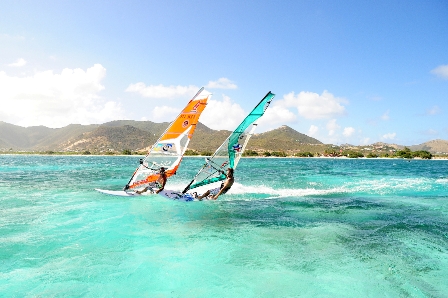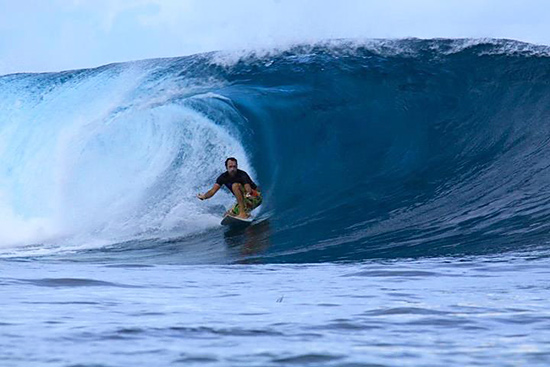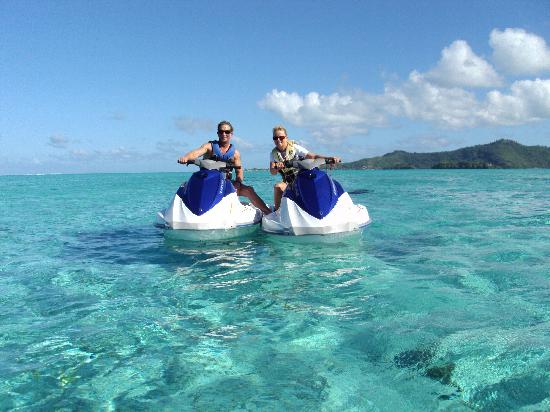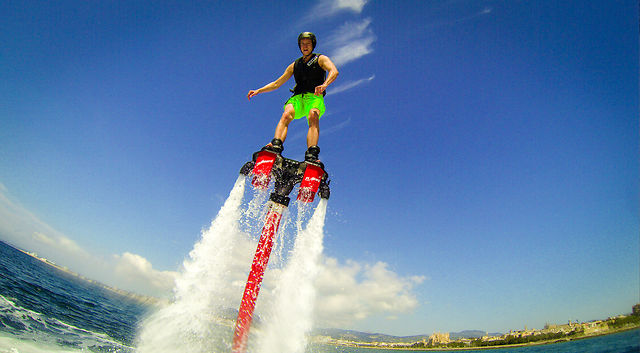St. Martin is an island in the northeast Caribbean, approximately 300 km (190 mi) east of Puerto Rico. The 87 square kilometers (34 sq mi) island is divided roughly 61/39 between France (53 square kilometers (20 sq mi))[1] and the Kingdom of the Netherlands (34 square kilometers (13 sq mi));[2] the two parts are roughly equal in population. It is the smallest sea island divided between two nations with inhabitants. The division dates to 1648. The southern Dutch part comprises Sint Maarten and is one of four constituent countries that form the Kingdom of the Netherlands. The northern French part comprises the Collectivité de Saint-Martin (Collectivity of St. Martin) and is an overseas collectivity of France.
Under the Köppen climate classification, the island has a tropical monsoon climate with a dry season from January to April and a rainy season from August to December. The precipitation patterns are due to the movement of the Azores high during the year. With the wind direction predominantly from the east or the northeast, temperatures remain stable throughout the year and temperatures rarely exceed 34 °C (93 °F) or fall below 20 °C (68 °F). Temperatures remain steady throughout the year with an average mean temperature of 27.2 °C (81.0 °F). The average sea temperature is 27.2 °C (81.0 °F) ranging from a low of 25.9 °C (78.6 °F) in February to a high of 28.4 °C (83.1 °F) in October. The total average yearly rainfall is 1,047 mm (41.2 in), with 142 days of measurable rainfall. Thunderstorms can occasionally occur, with 18 days with thunder per year.
English is spoken everywhere, but Dutch is the official language of St. Maarten and French is the official language of Saint Martin. On the Dutch side, you may also hear Spanish, Papiamentu, Italian, Hindi, Chinese and other languages.
On January 1, 2009 the population of the entire island of Saint Martin was 77,741 inhabitants, 40,917 of whom lived on the Dutch side of the island, and 36,824 on the French side of the island.[4] A local dialect is spoken informally on both sides of the island.
In French Saint-Martin, the most popular religion is Roman Catholicism. Dutch Sint Maarten favors Protestant denominations, particularly Methodism. The island also has small Jewish and Seventh-day Adventist communities. Perhaps in part due to French influences, the whole island is known for its excellent cuisine.
Caribbean cuisine is a fusion of African, Amerindian, European, East Indian, Arab and Chinese cuisine. These traditions were brought from many different countries when they came to the Caribbean. In addition, the population has created styles that are unique to the region. Ingredients which are common in most islands' dishes are rice, plantains, beans, cassava, cilantro (coriander), bell peppers, chickpeas, tomatoes, sweet potatoes, coconut, and any of various meats that are locally available like beef, poultry, pork or fish. A characteristic seasoning for the region is a green herb and oil based marinade which imparts a flavor profile which is quintessentially Caribbean in character. Ingredients may include garlic, onions, scotch bonnet peppers, celery, green onions, and herbs like cilantro, marjoram, rosemary, tarragon and thyme. This green seasoning is used for a variety of dishes like curries, stews and roasted meats. Traditional dishes are so important to regional culture that, for example, the local version of Caribbean goat stew has been chosen as the official national dish of Montserrat and is also one of the signature dishes of St. Kitts and Nevis. Another popular dish in the Anglophone Caribbean is called "Cook-up", or Pelau. Ackee and Salt Fish is another popular dish that is unique to Jamaica. Callaloo is a dish containing leafy vegetables and sometimes okra amongst others, widely distributed in the Caribbean, with a distinctively mixed African and indigenous character.
On St. Martin, French traffic laws are applied and driving is on the right side of the road. Drivers must hold a French or international driving license, which covers them across the territory. St. Martin’s road system essentially comprises a ring road that skirts the island’s coastline and smaller roads linking the built-up areas. The courtesy of St. Martin’s road users is much fabled, and it is customary here for drivers to use their horn to greet others. In spite of the odd traffic jam in the high tourist season due to the island’s inadequate infrastructure, driving on St. Martin is relatively stress-free drive.

Of all the water-based board sports, wind surfing, which harnesses the power of the wind to push you across the water, is surely one of the most exhilarating and most physically demanding. From first-timers to experienced funboarders, the eastern coast of the island, which is exposed to the trade winds, offers year-round fun in relatively sheltered surroundings. Average winds are between force 3 and force 4.

Of all the board sports, surfing demands a special effort from Mother Nature herself. This interaction with the immense power of the waves gives surfers a “philosophy” that is entirely unique to them. These spots are also suitable for body boarders and fearless wind surfers. St. Martin has a number of well-known surf spots. When the swell picks up, the surfers gather around these spots, awaiting the right conditions to ride the waves.

Jet skis can be rented on many of the island’s beaches (Orient Bay, Baie Nettlé, Anse Marcel and others). Do not enter the waters of the National Nature Reserve, where jet skiing is strictly prohibited. On the French side, you are required by law to have a boat permit in order to rent a jet ski for personal use.

Want to fly like Super Man and swim like a dolphin well that's possible. This new extreme water sport is an intense way of enjoying the sea from a whole different angle. With the help of a jet-ski turbine you will be propelled up to 45 feet over the water as well as under it. Not more than 20 minutes with an instructor are necessary to learn how to operate a fly board!
05 Stars:
17B Obour Bldgs, Salah Salem Rd., Heliopolis, Cairo, Egypt
marketing@canyon.travel
operation@canyon.travel
02-22 62 50 54/44